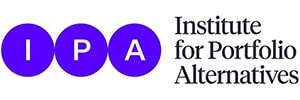Technology Ushers in a New Era for Alternative Investments
By Staff


A recent discussion among industry leaders underscores the increasingly pivotal role technology is playing in the evolution of alternative investments. A webinar hosted by the Institute for Portfolio Alternatives, titled Empowering Wealth Management: Technology’s Role in Transforming Alternatives, explored how innovation is reshaping operational efficiency and investor engagement within the sector.
The session, grounded in findings from the Institute’s Technology, Innovation, and Operations Committee’s latest white paper, brought together key stakeholders to examine how firms are adapting to—and benefiting from—technology-driven change. Panelists included Brendan Cuddihy, chief operating officer at CAIS and chair of the committee; Martin Griffin of Beacon Ridge Capital; Jay Frank of Cantor Fitzgerald Asset Management; and Binoy Talati of iCapital.
Panelists highlighted the emergence of vertically integrated technology platforms as a major catalyst for growth in the alternatives space. These platforms are consolidating core operational functions, such as due diligence, recordkeeping, compliance, and onboarding, into unified systems. The result is a streamlined infrastructure that reduces friction for wealth managers and lowers the barriers to entry for firms exploring the private markets.
“I’m a firm believer—and probably everybody who’s at the Institute is—that we are in the golden age of alts,” said Frank. “Technology, software operations, everything that this committee touches—that’s one of the legs of the stool that’s enabling this renaissance.”
Griffin pointed to education as a parallel requirement to technological innovation. As alternative investments become more accessible, financial professionals must be equipped to guide clients through complex structures and strategies. “It’s not just tech enablement, but also education,” he said, emphasizing the need for portfolio-level knowledge and product-specific expertise.
The conversation also addressed the regulatory environment, including potential updates to investor accreditation standards. Cuddihy noted that changes under consideration could broaden access to private offerings, aligning with broader policy signals from the federal government. “There’s good momentum,” he said, suggesting such changes could unlock new capital sources and enhance client outcomes.
Taken together, the panel’s insights suggest that the convergence of digital infrastructure and shifting policy frameworks could accelerate both adoption and innovation across alternative asset classes.
The Institute for Portfolio Alternatives, a trade association for the alternatives sector, continues to facilitate industry dialogue on these developments through its committee work, events, and educational initiatives.
For more IPA news, please visit their directory page.


